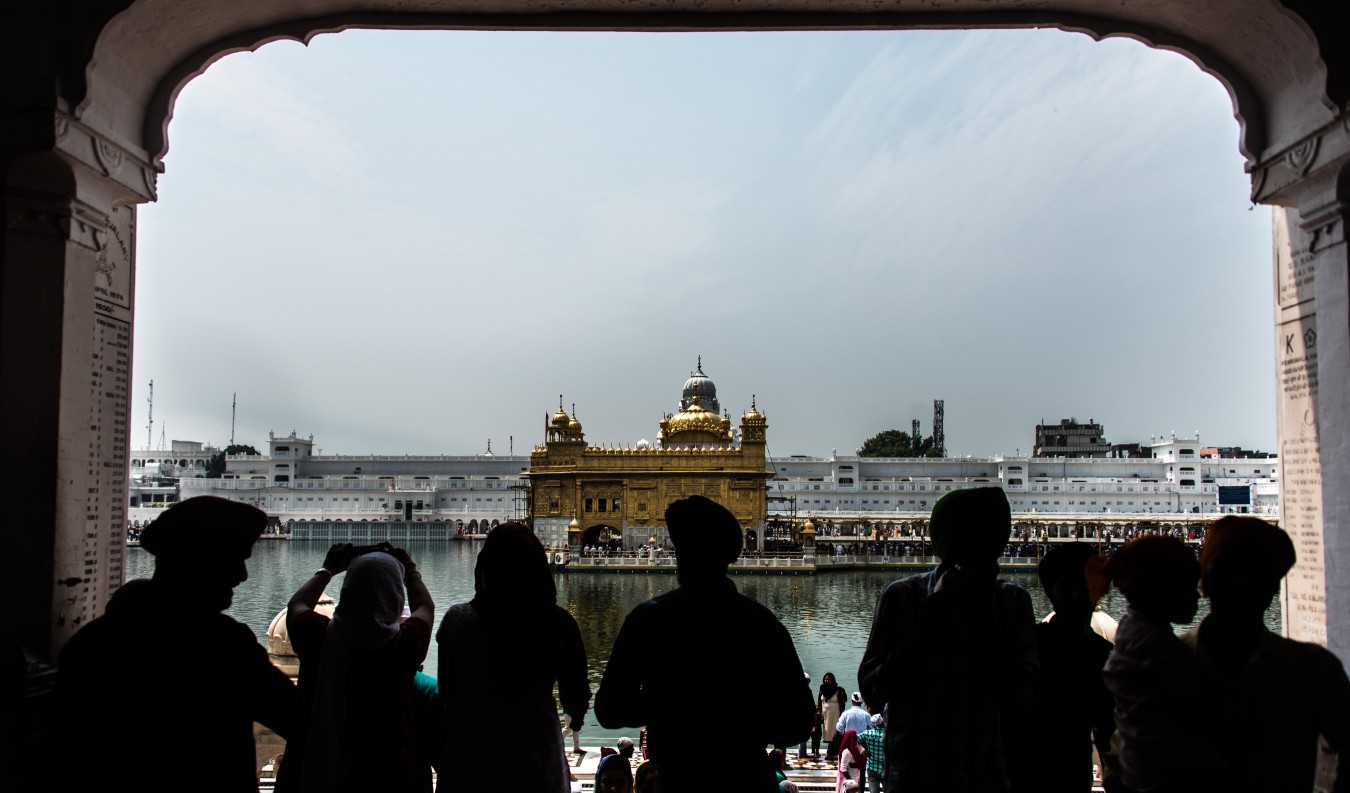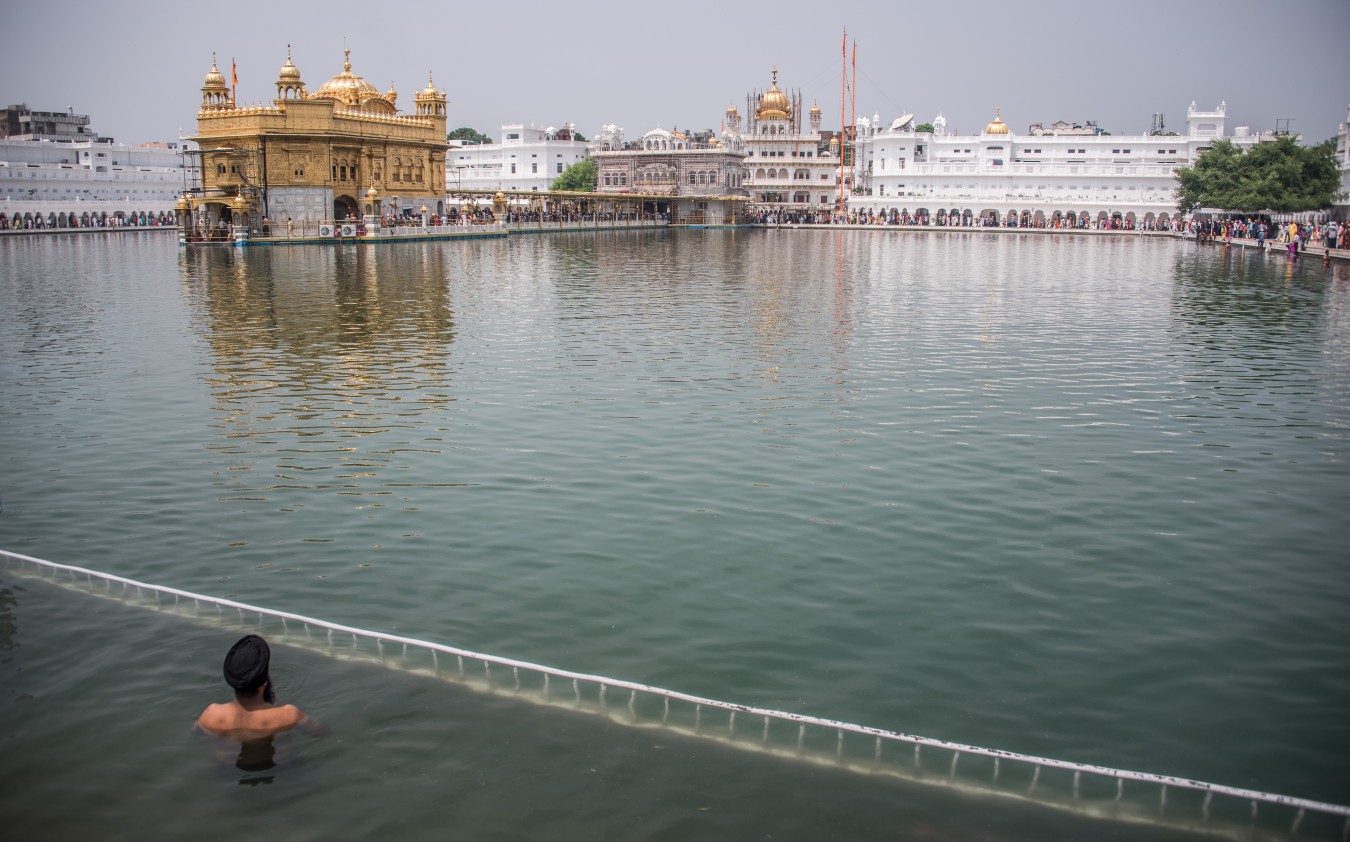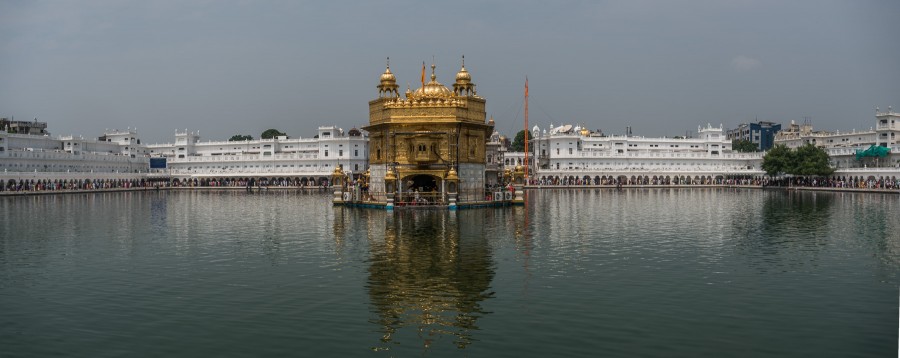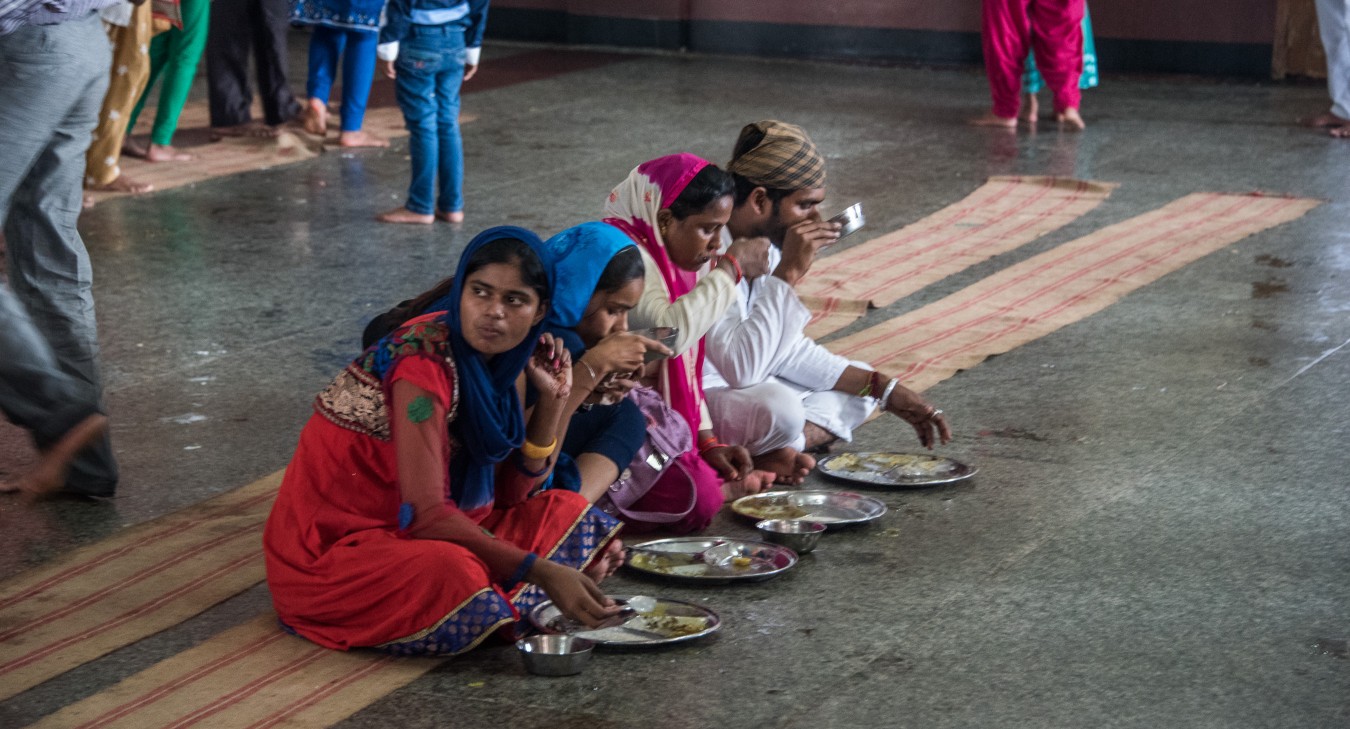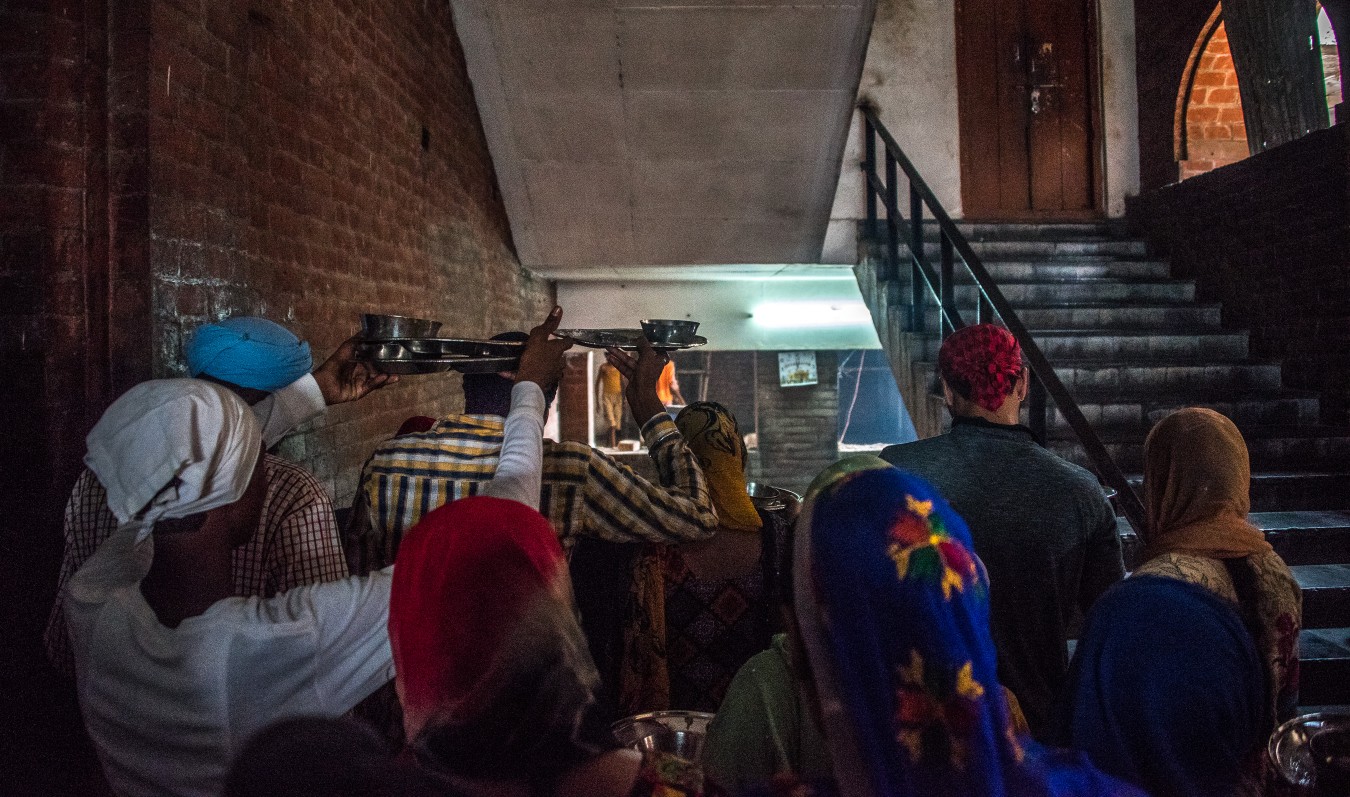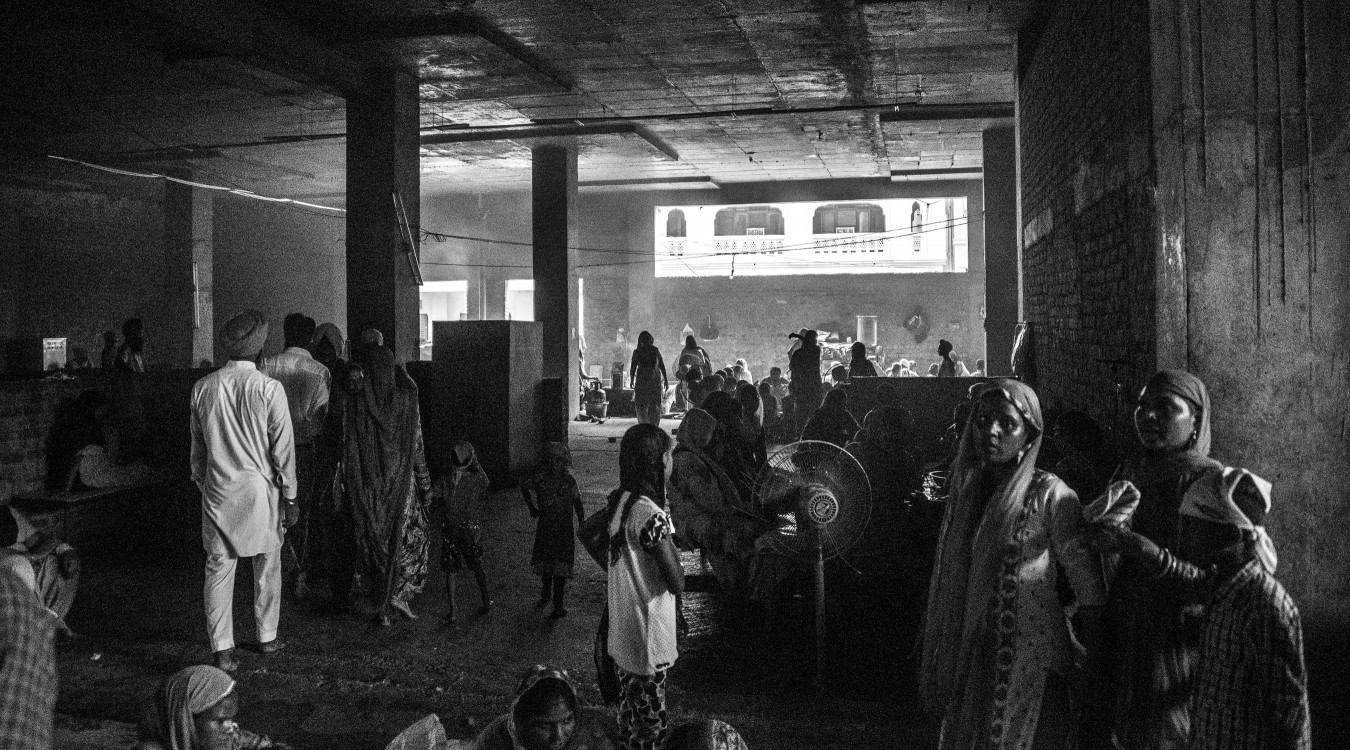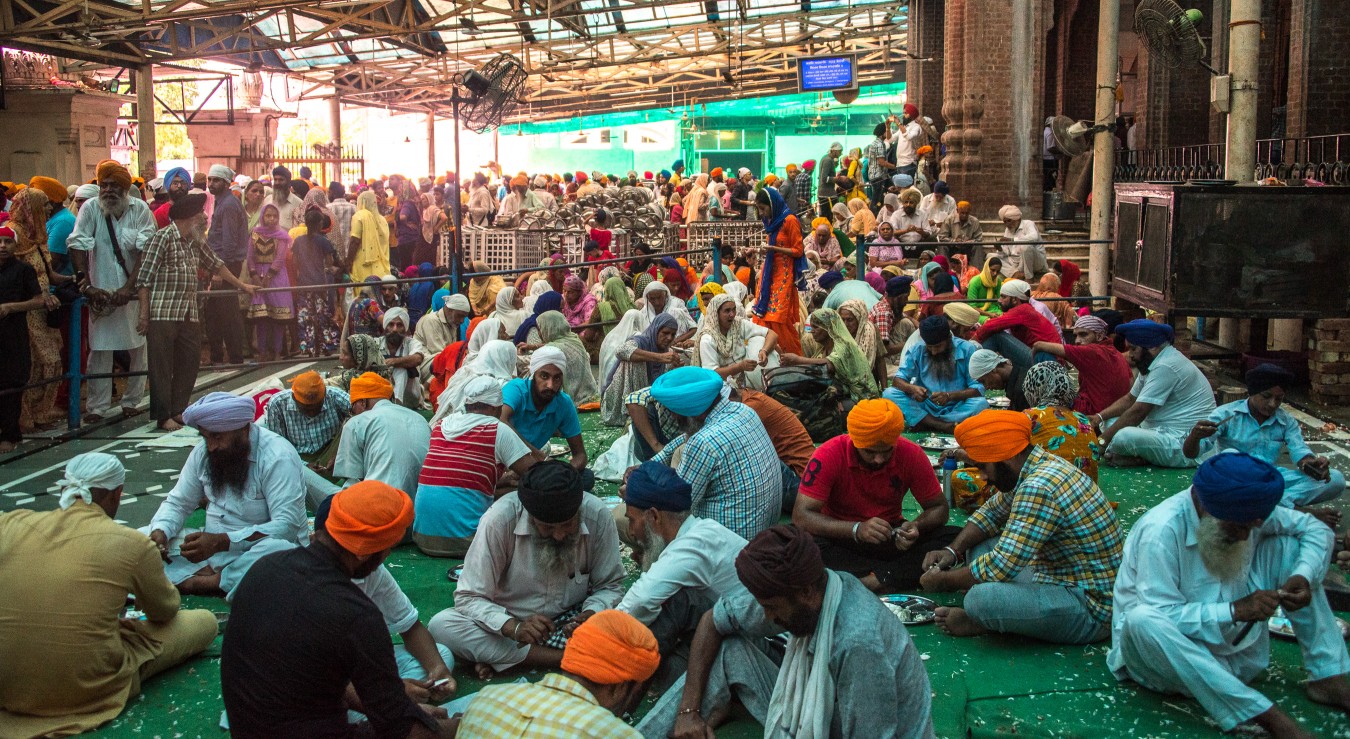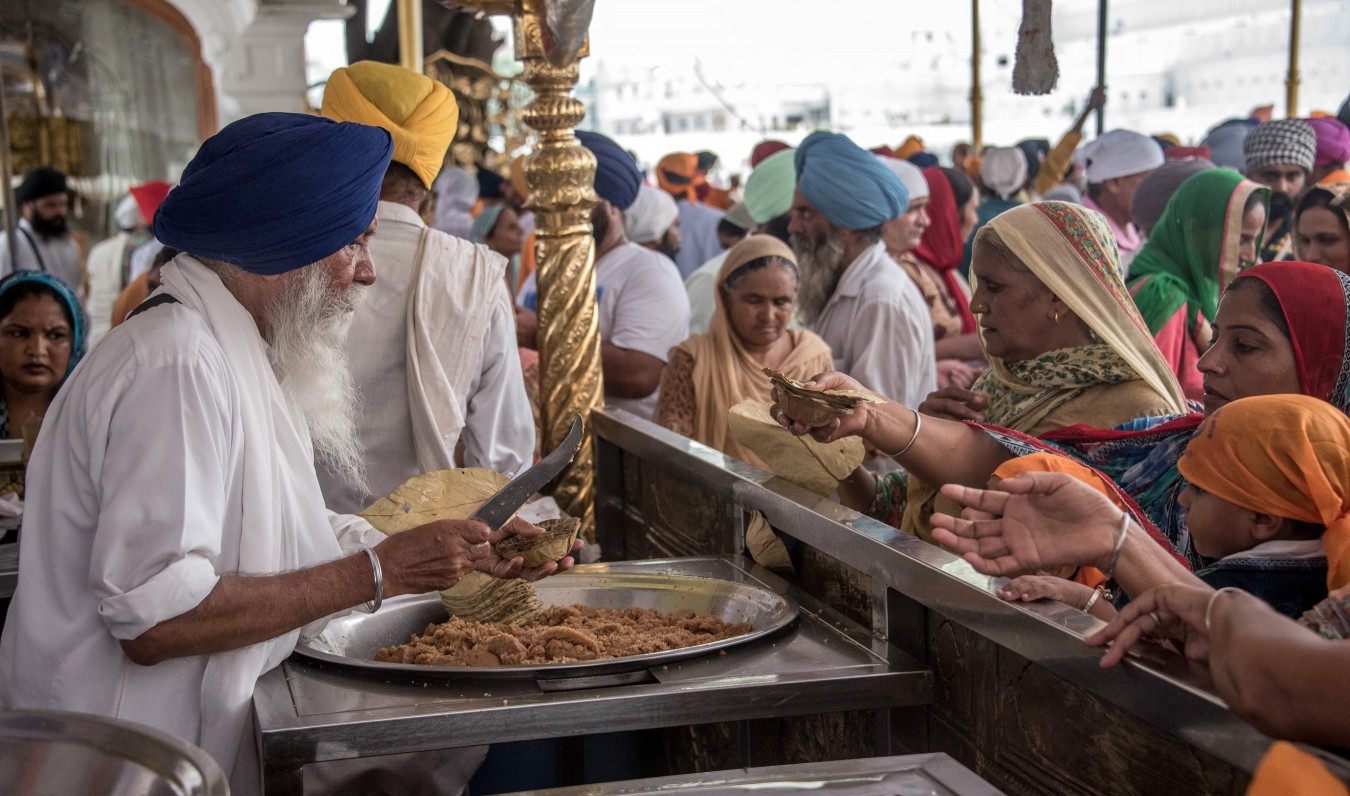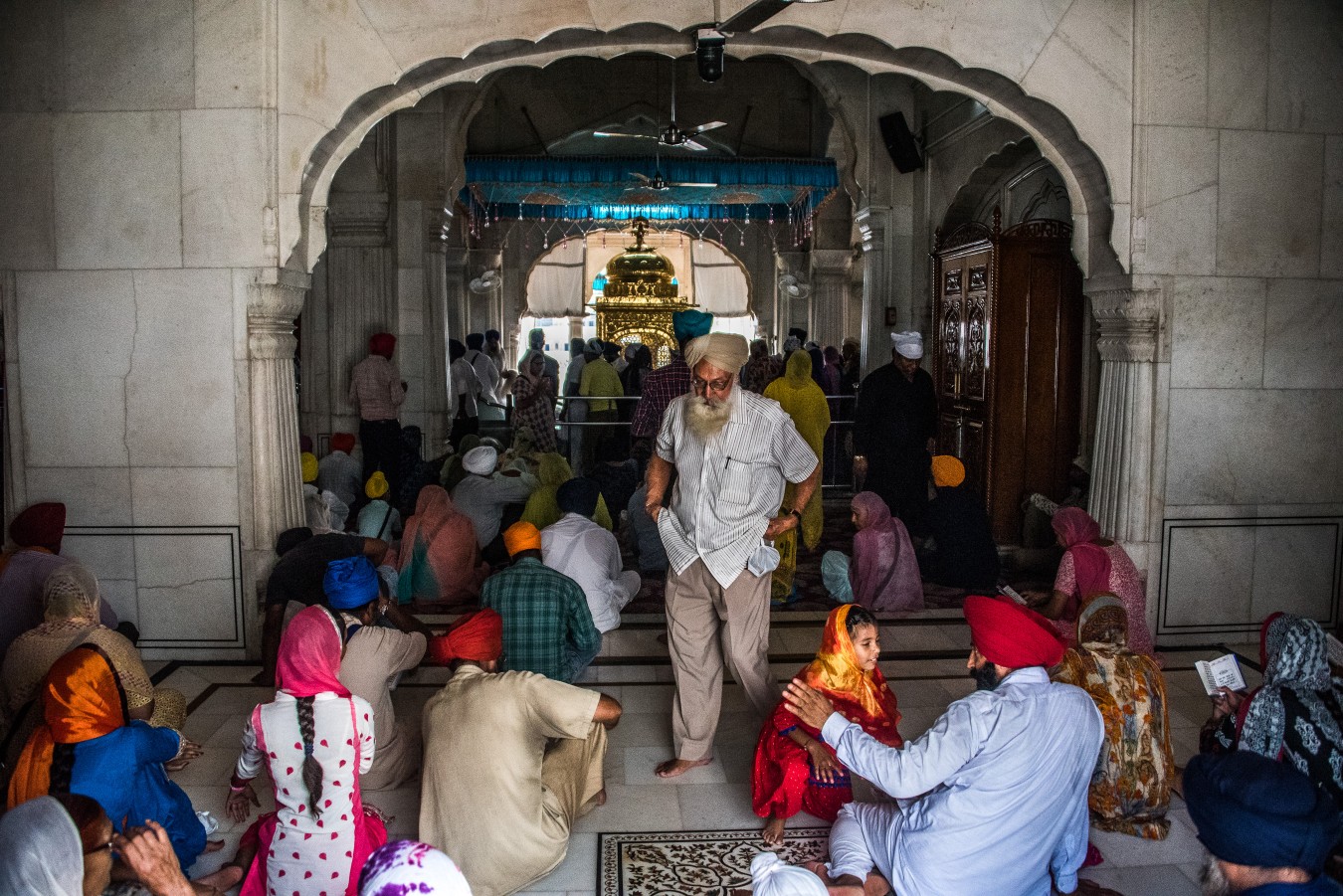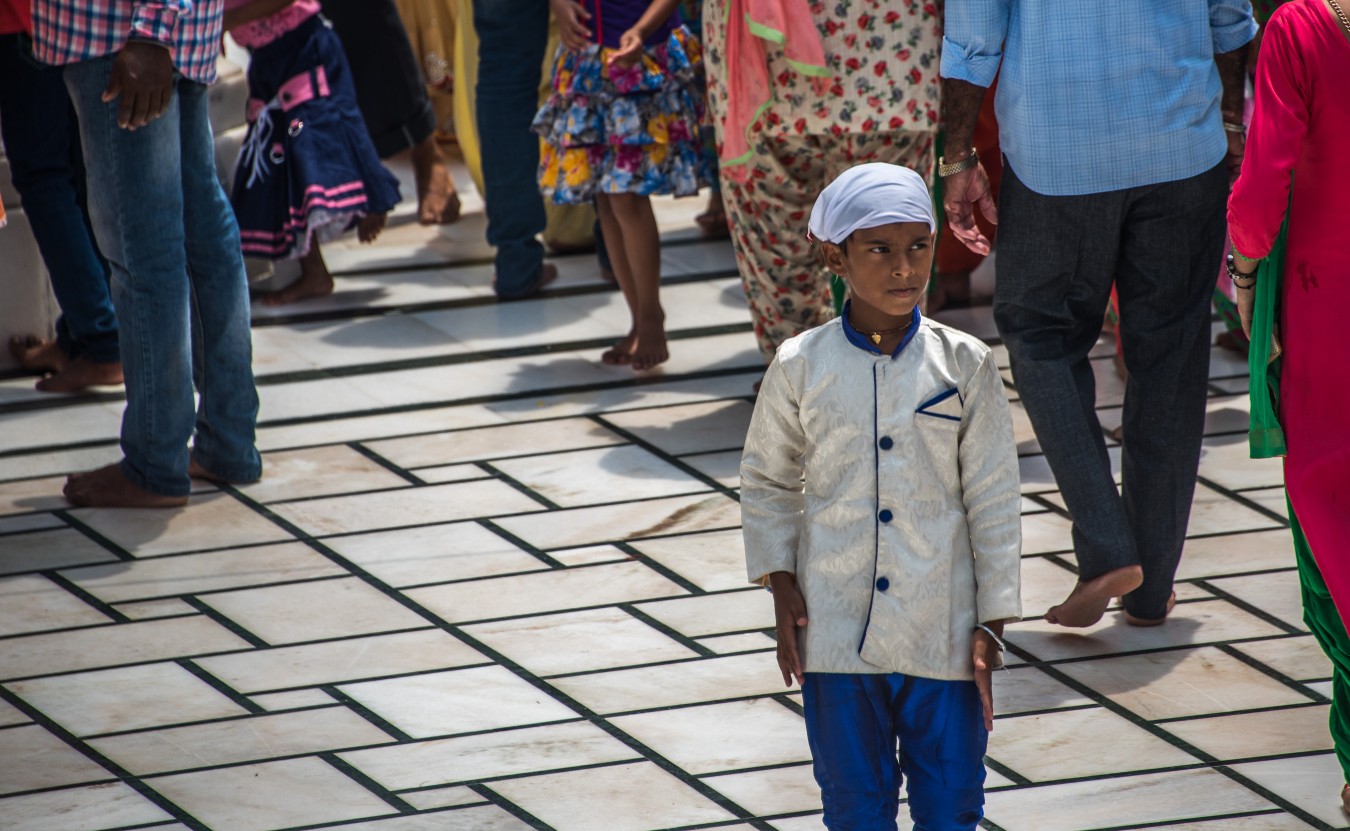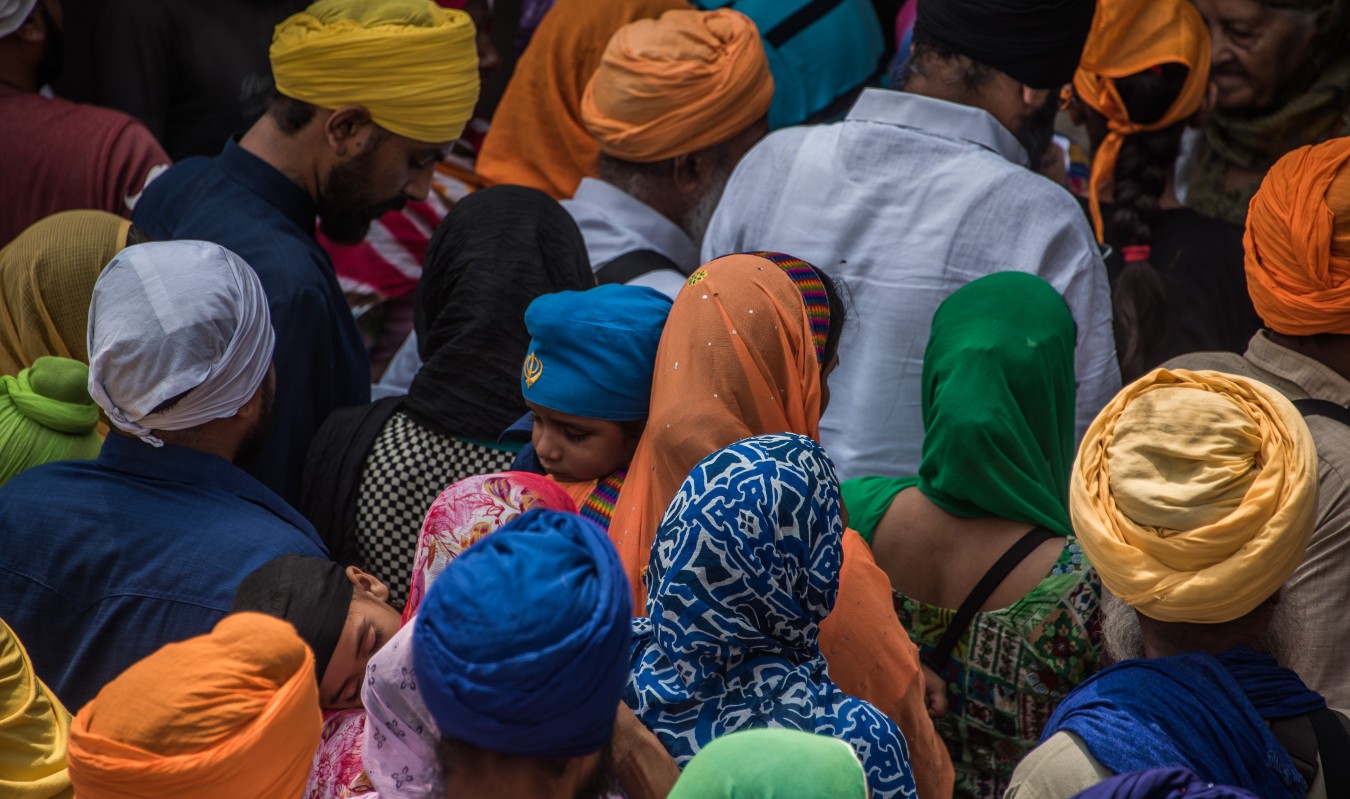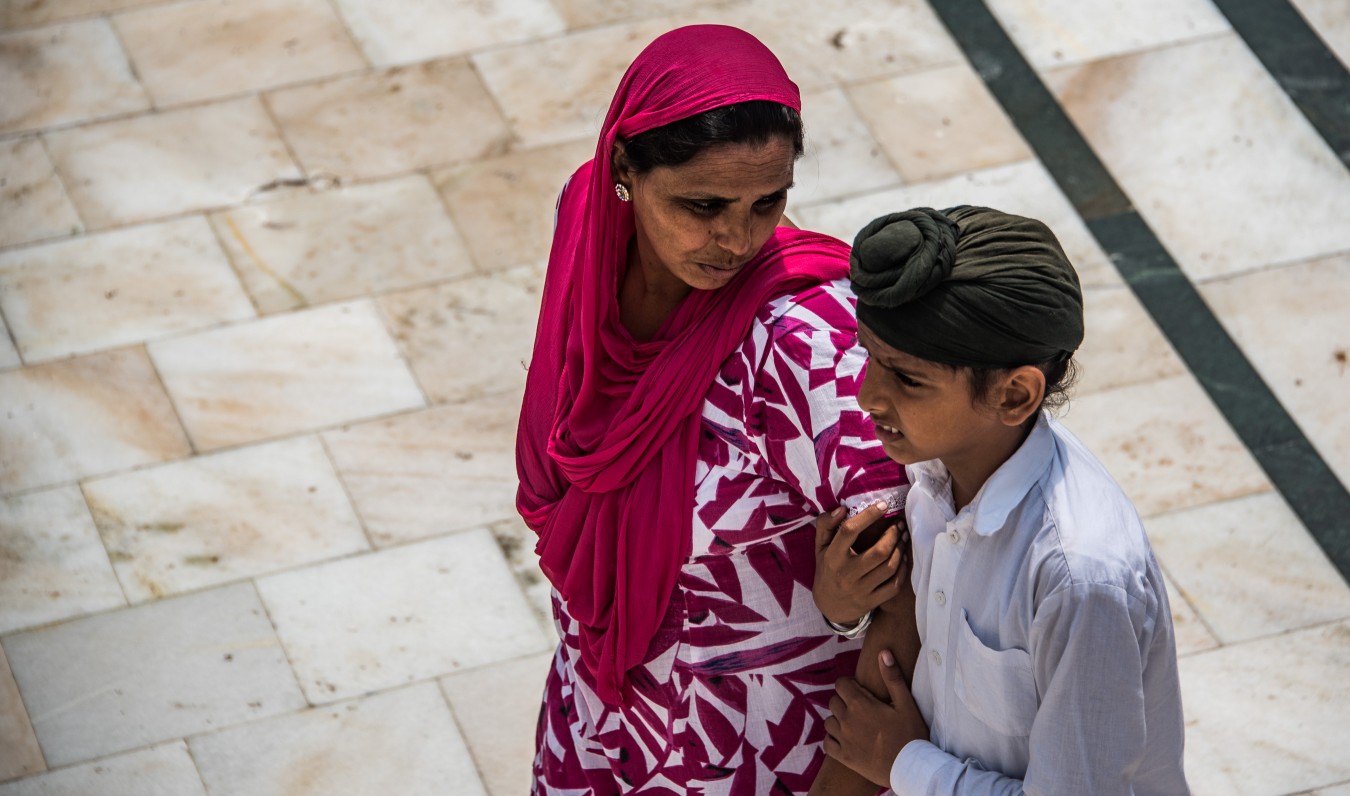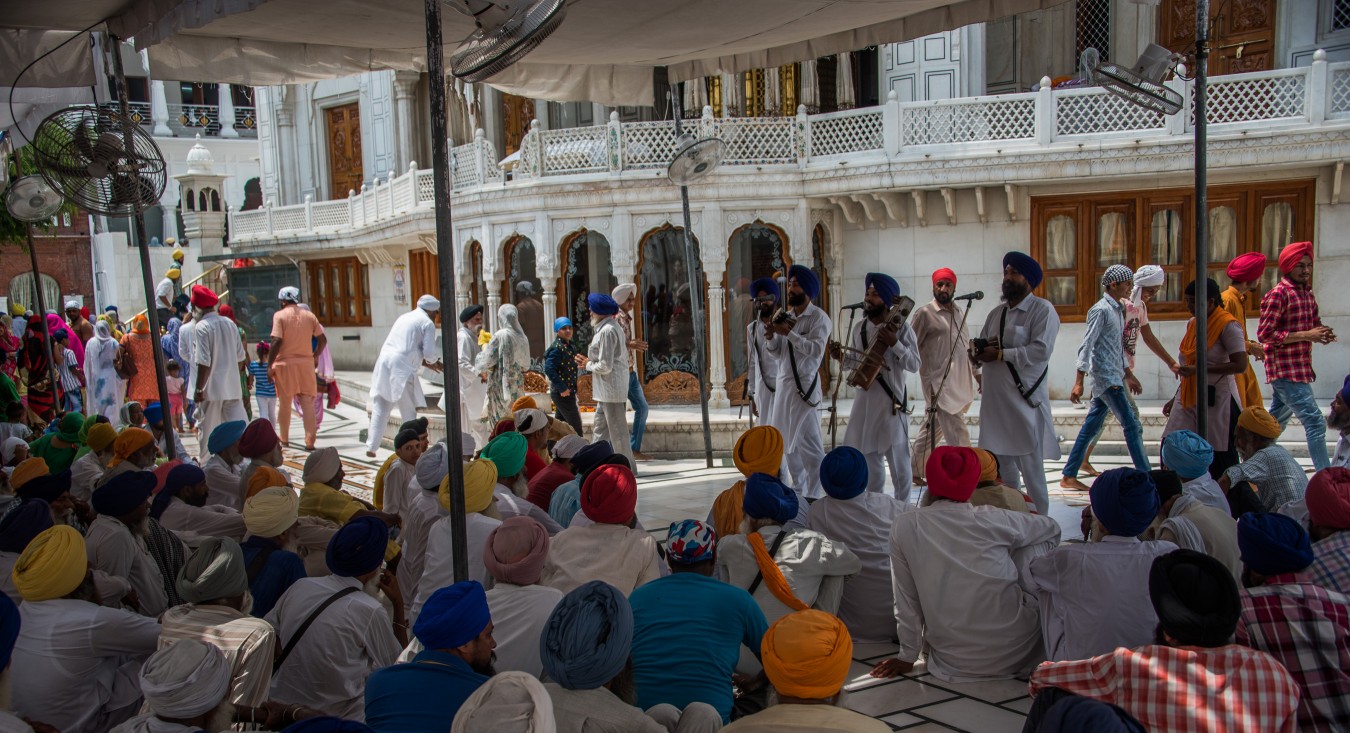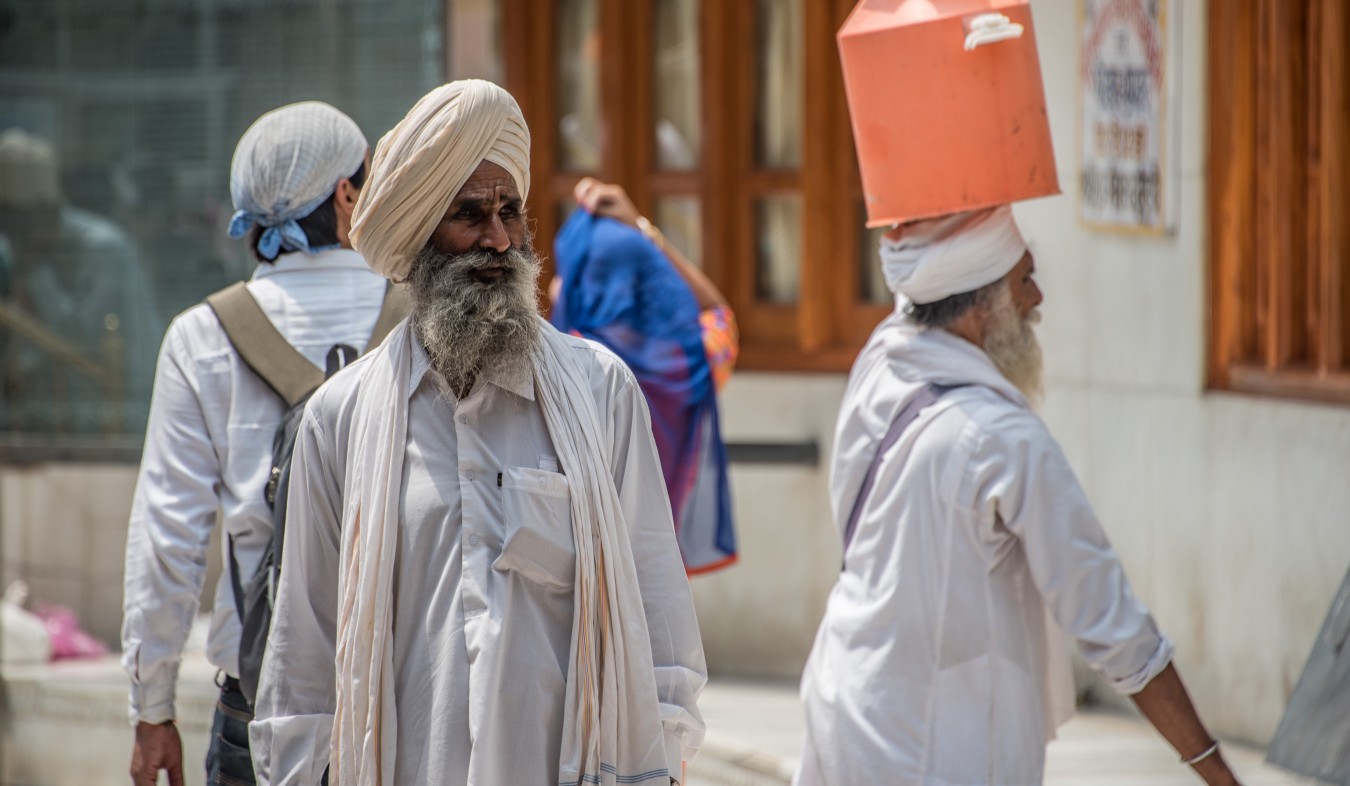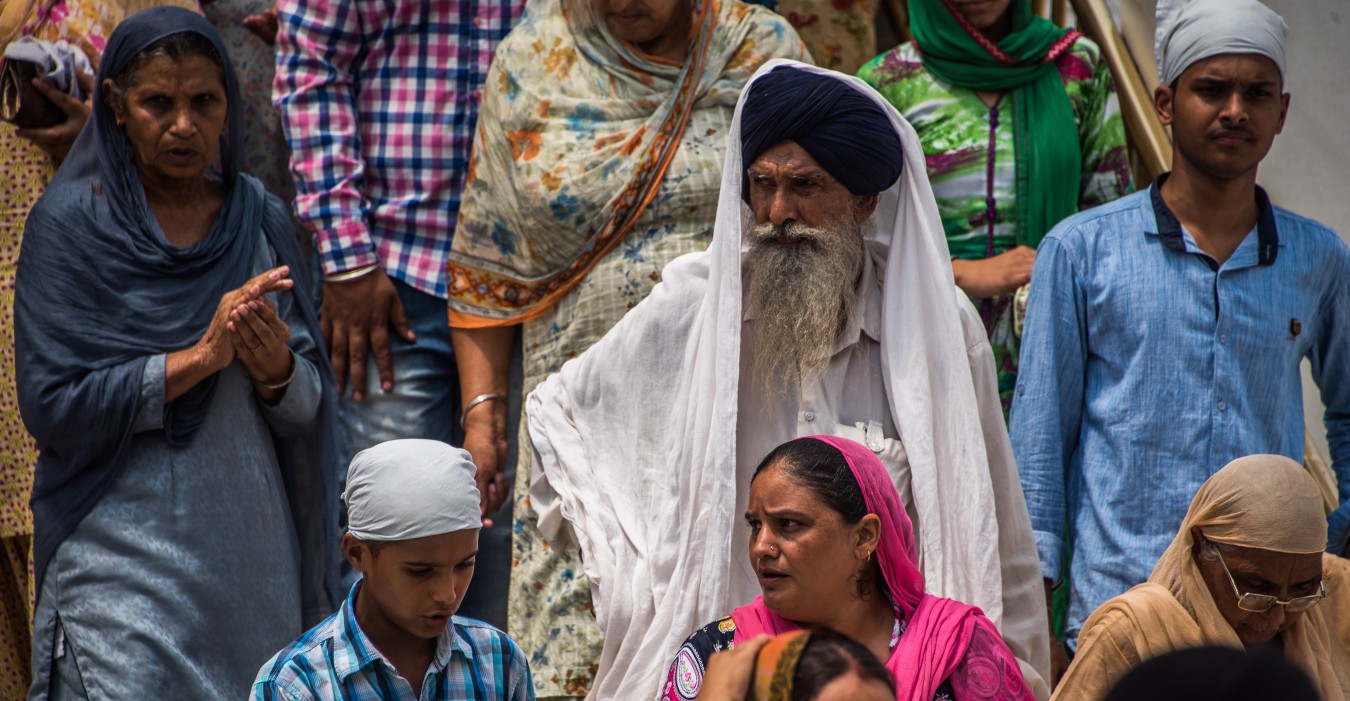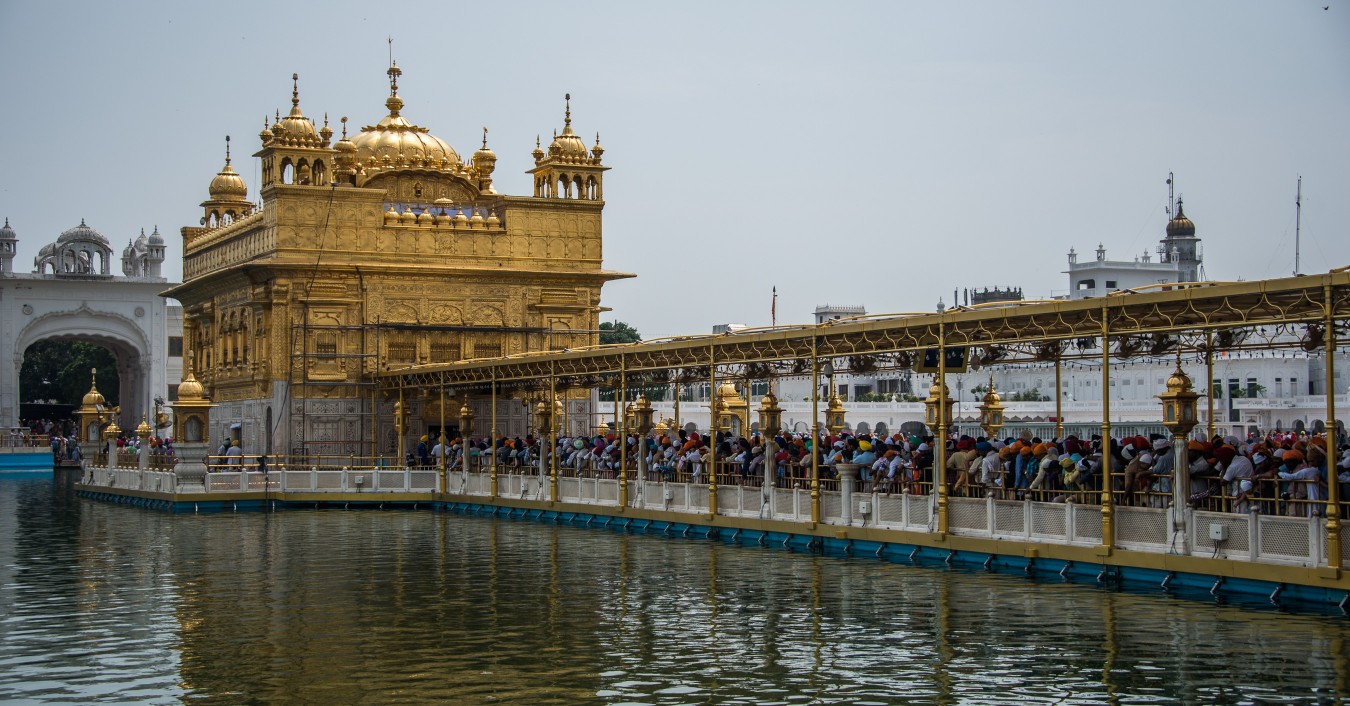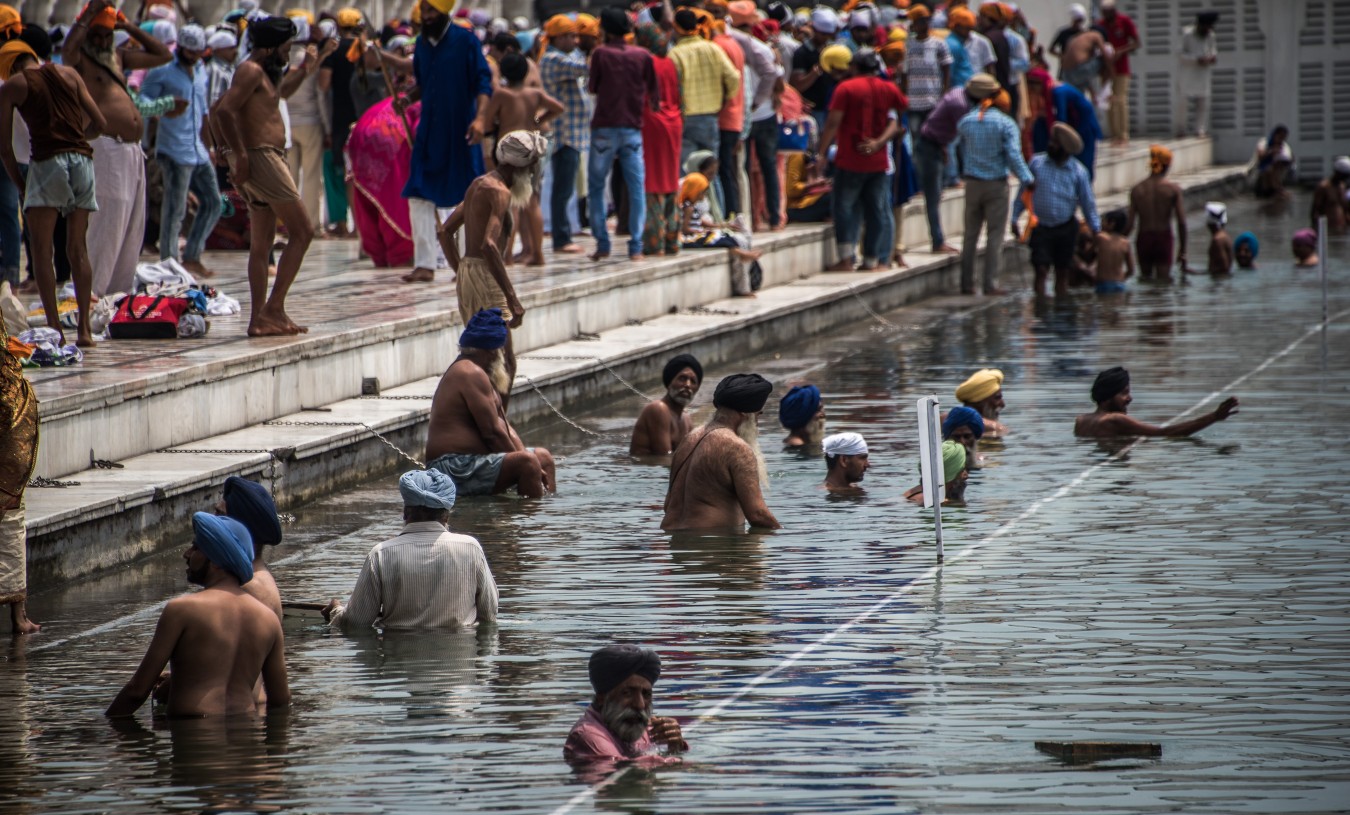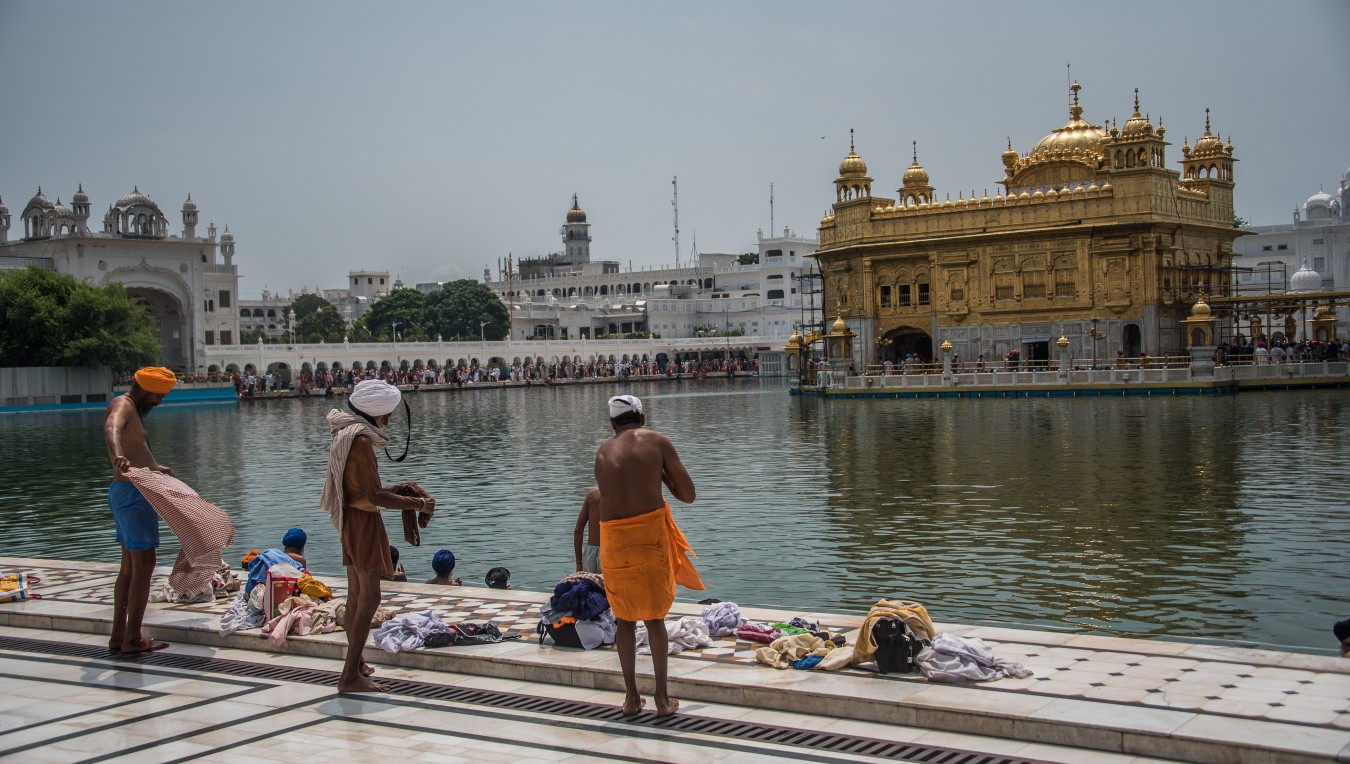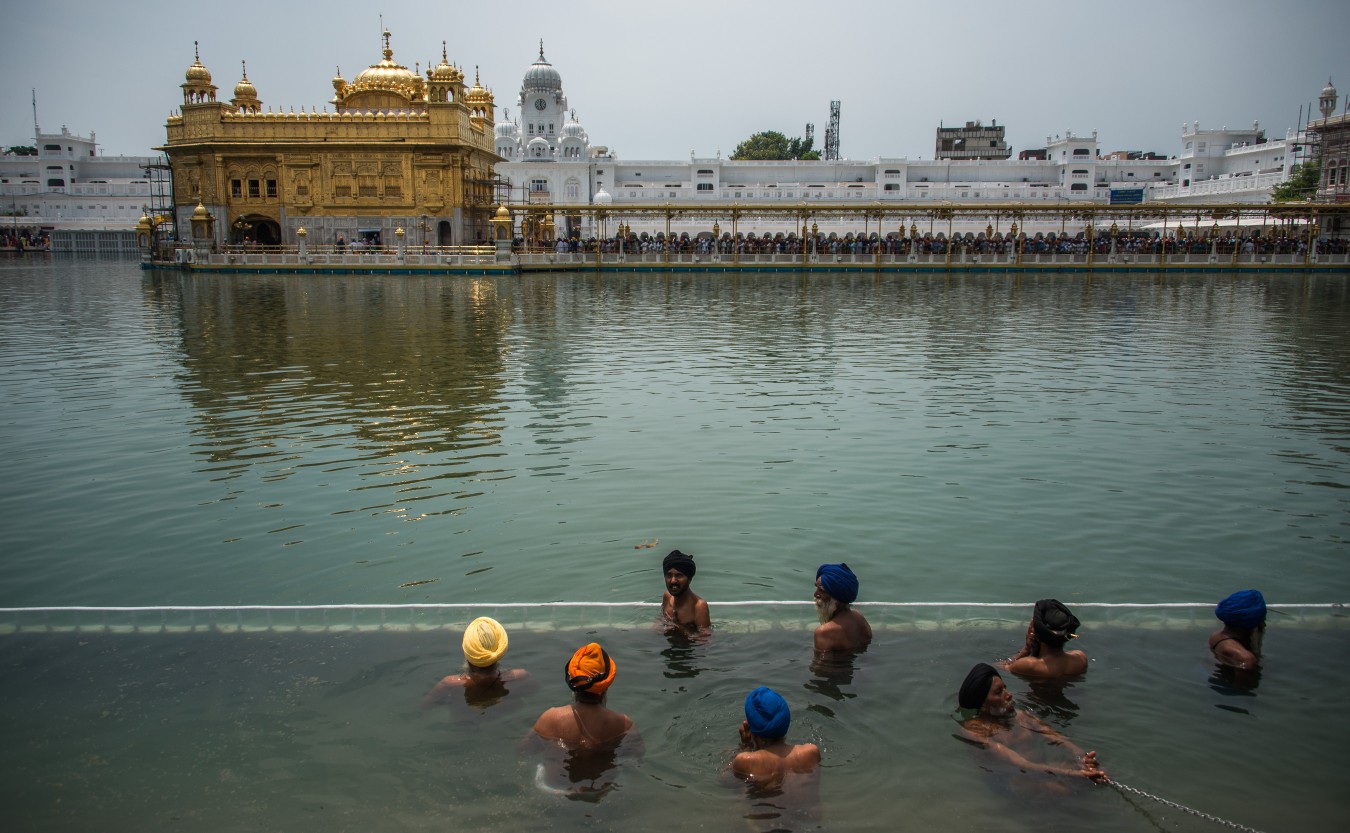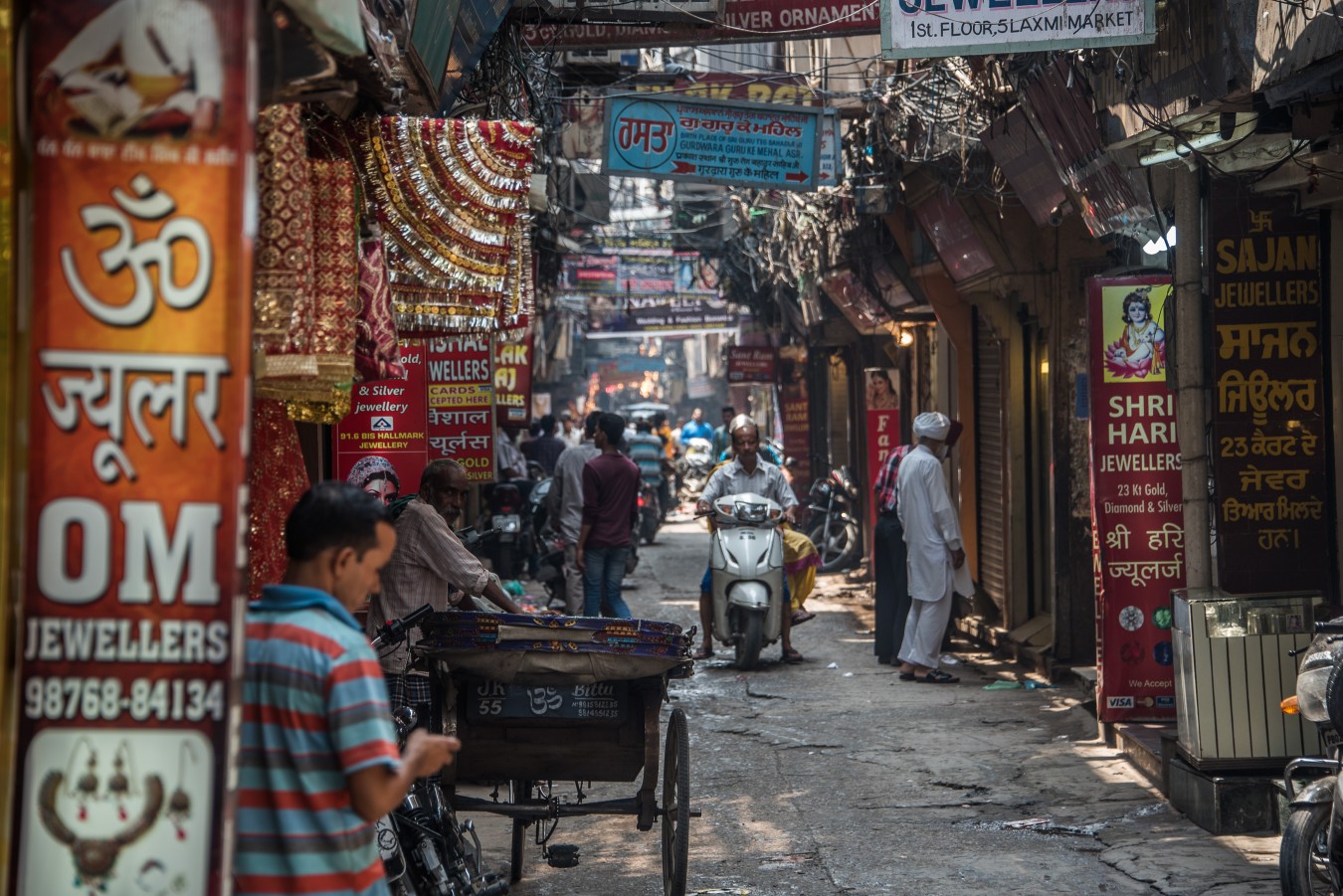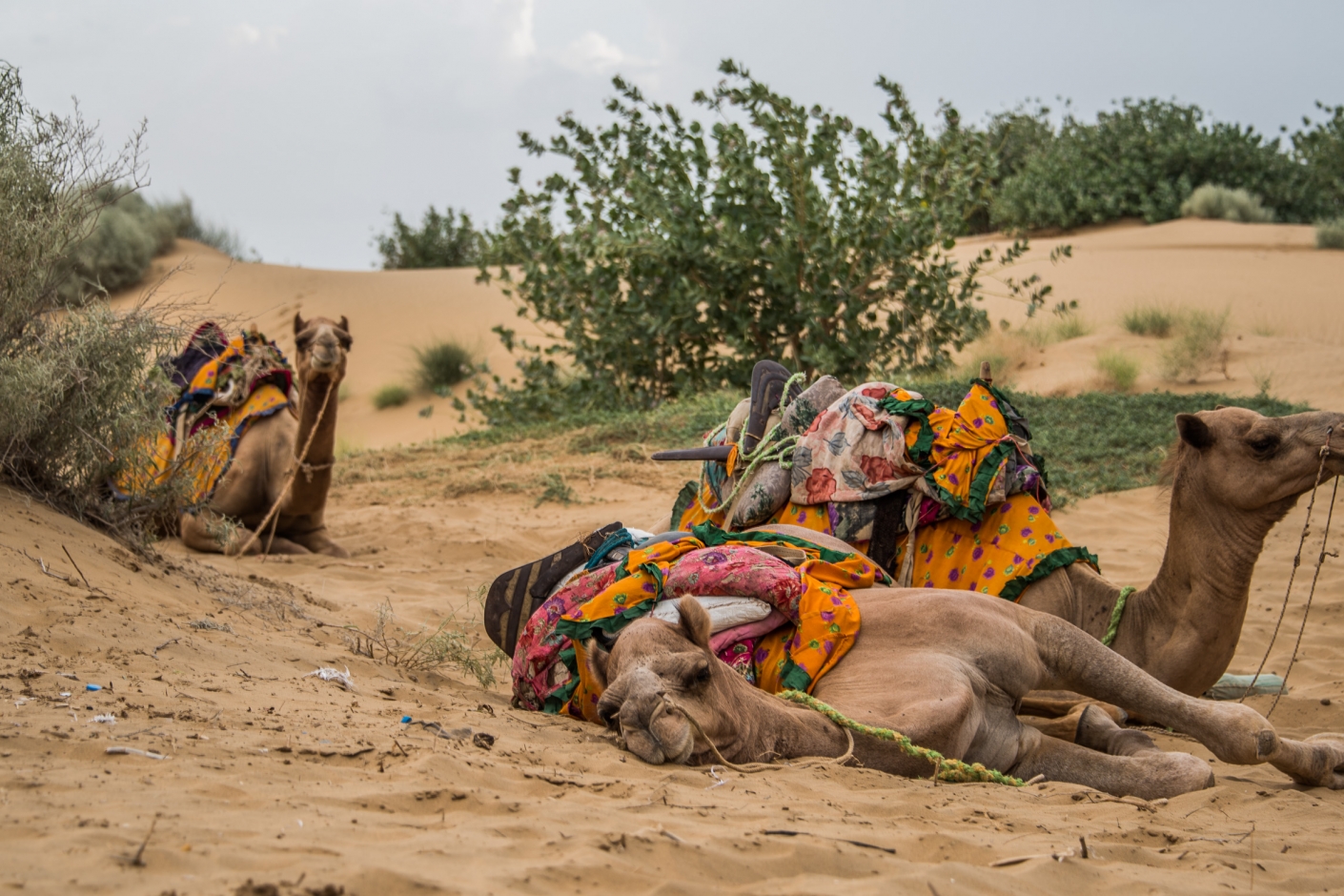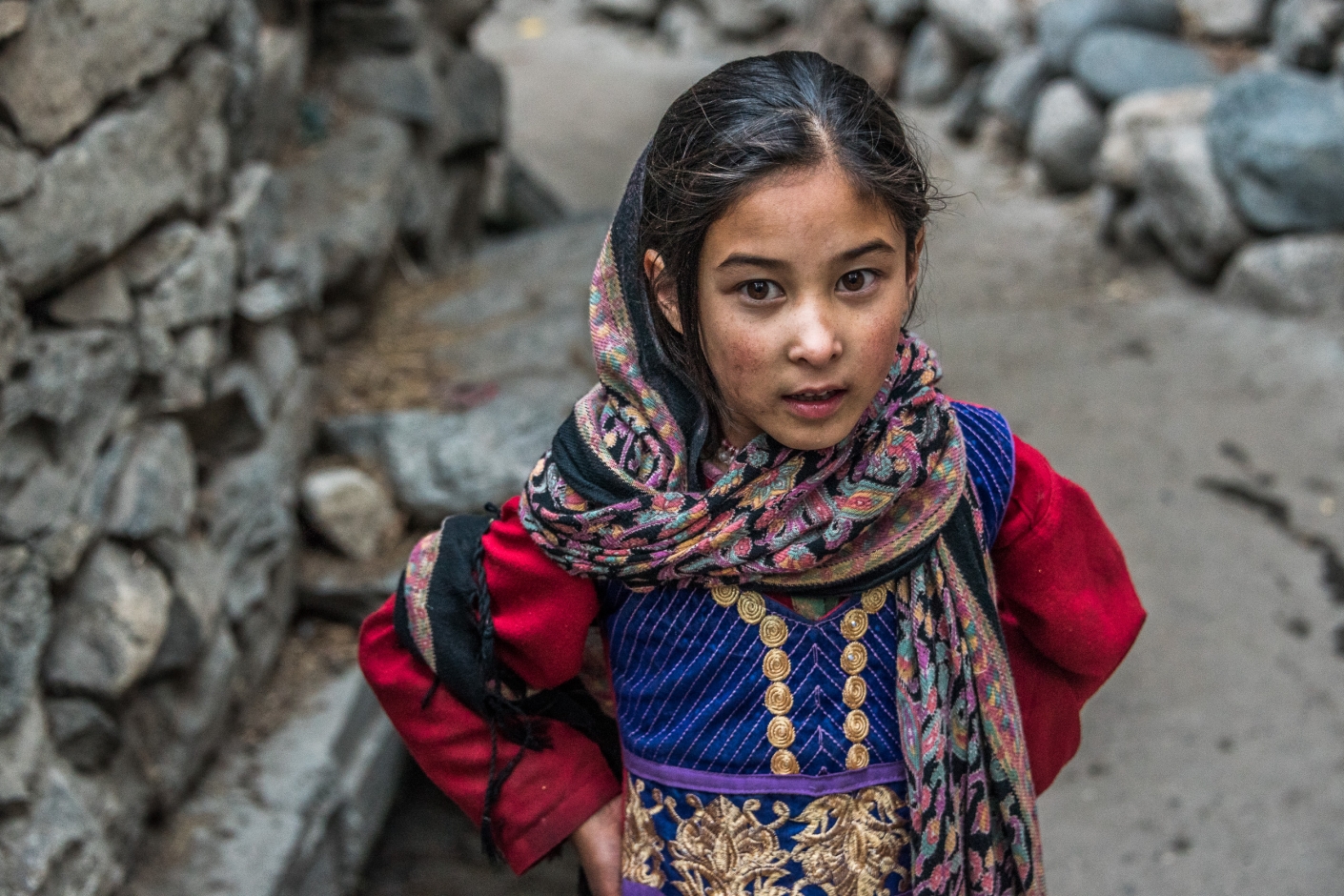The legendary Golden Temple is actually just a small part of this huge Gurdwara complex, known to Sikhs as Harmandir Sahib (or Darbar Sahib). More shrines and monuments are dotted around the edge of the compound. But of the most interest is perhaps the community kitchen - the Langar. The largest free kitchen in the world can serve free food for up to 100,000 - 300,000 people every day and thousands of volunteers are employed daily to operate it. Importantly, it serves free food to any visitors - regardless of their religion, caste, colour, creed, age, gender, or social status - as according to Sikh religion everybody should be treated as equals. This was a revolutionary concept in the caste-ordered society of 16th century India where Sikhism began. In addition to the ideals of equality, the tradition of Langar expresses the ethics of sharing, community, inclusiveness, and oneness of all humankind. Every Sikh Gurdwara (shrine) serve Langar for everyone.
The Golden Temple is a Sikh temple. Sikhism is one of the youngest major religions in the world and it was established in 16th century. While it is centred and originated in the Punjab region of India (of which Amritsar is the capital), the Sikh followers currently account to around 30 million with large diaspora around the world. The fundamental beliefs of Sikhism, articulated in the sacred scripture Guru Granth Sahib, include faith and meditation on the name of the one creator, unity and equality of all humankind, engaging in selfless service, striving for social justice for the benefit and prosperity of all, and honest conduct and livelihood while living a householder's life.
